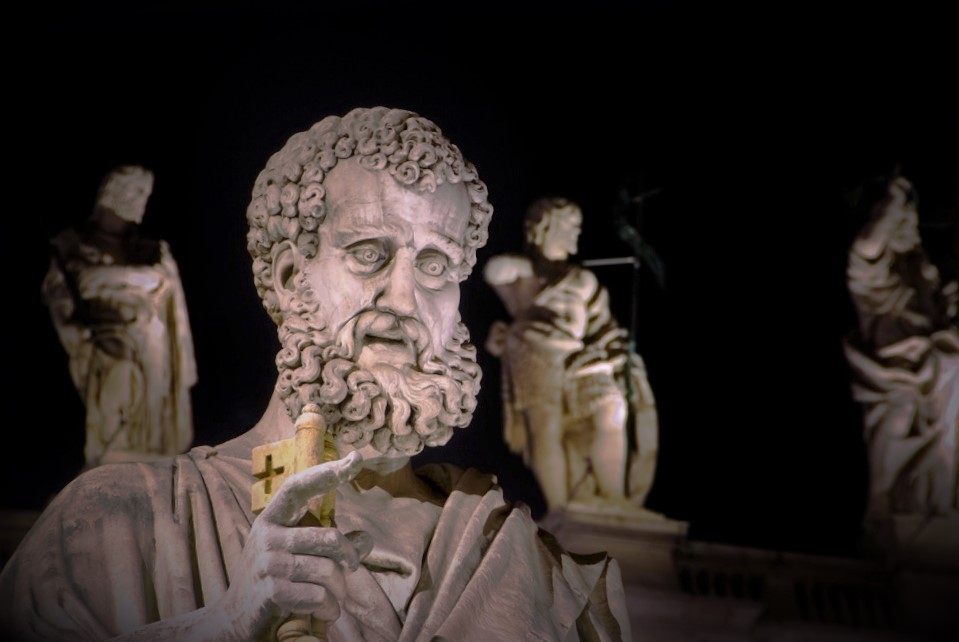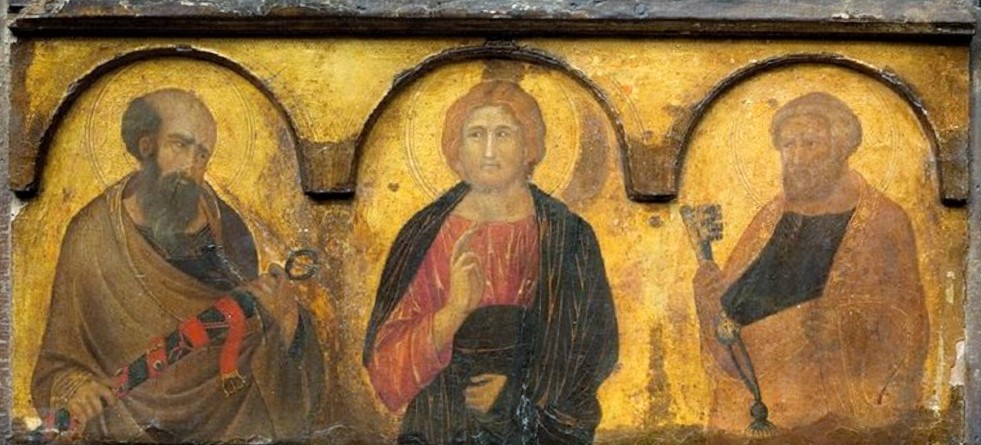In today’s First Reading, the Lord reveals two significant aspects regarding his Word. God’s Word is living (“fertile and fruitful”) and powerful (“achieving the end for which I sent it”). In what sense do we say that the Word of God is living?
Books are wonderful. Through them and the gift of imagination they foster, we can travel to space and distant lands. We build empathy through reading about the experiences of real and fictional people from around the world and throughout human history. We gain wise insights and grapple with the deepest and most profound questions of human meaning. However, the Bible is fundamentally different from all other books, no matter how brilliant. All other books ultimately express the thoughts of their human authors. Sacred Scripture expresses a Living Person, the Word of God, the Risen Christ Jesus. This Person is the Word through whom all things were created, redeemed, and ultimately find their origin and meaning. Vatican II offers us this key insight, “in reality it is only in the mystery of the Word made flesh that the mystery of humanity truly becomes clear.” (Gaudium et spes, no. 22) Ultimately, God’s Word is alive because Jesus is alive, risen from the dead never to die again.
In what sense do we mean that the Word of God has power? Usually, when we think of something or someone as powerful, it means that they have the ability to coerce or manipulate a response from us. Failure to comply with them will bring unpleasant consequences. They necessarily limit our freedom. However, this is not God’s definition of power. Dr. Martin Luther King, Jr. gave us a good definition of biblical power, “Power, properly understood, is the ability to achieve purpose . . . power at its best is love implementing the demands of justice.” God’s word has this kind of power. It is not coercive or limiting to true freedom (the freedom to love), but it has the ability to effect change in our hearts and in our world. It can truly change our lives and the course of human history. Scripture is God’s revealed love bringing about his plan of reconciliation and justice.
So how can the Word of God become living and powerful in our lives? In today’s Gospel, Jesus talks about the proper disposition for prayer and teaches his disciples how to pray. When our prayer is rooted in Scripture in the context of our loving relationship with our Father, we experience deep within the Word of God as living and powerful. Bible studies are a great way to learn about God and should be encouraged. Nevertheless, to really know (and not just know about) God, we need to spend time with him present in his revealed Word.
The context for Scriptural prayer par excellence is the Liturgy. Each of the sacraments begins with a Liturgy of the Word, and the sacramental action comes as a response in faith to the living and powerful Word proclaimed. The oath (Latin=sacramentum) of the Lord, found in his Word, gives each sacrament its efficacy. To the extent that we actively listen to the proclamation of God’s Word, the better we are able to actively and fully participate in the Liturgy, opening ourselves to a more full cooperation with God’s life and power (also known as Sanctifying Grace) available to us through liturgical ritual prayer.
Another great way to pray with Scripture is through the Psalms. The Catechism of the Catholic Church calls them “the masterwork of prayer in the Old Testament.” (no. 2585) For this reason, the Church uses them as the foundation for the Liturgy of the Hours. Their antiquity speaks to their vitality and power. For almost 3,000 years, they have been used to sustain and express the praise, longing, and lamentation of the People of God. Jesus prayed this inspired poetry, even from the cross. (Ps 22:2; Mk 15:34) In the Psalms, every human emotion is felt, acknowledged, and placed before God. As a poet and proponent of “communal pondering in a noisy world” Marilyn Nelson said in a recent interview, “poetry comes out of silence and leads us back to silence . . . and that’s why reading poetry, reading it alone silently takes us someplace where we can’t get ordinarily. Poetry opens us to this otherness that exists within us. In any case, I think poetry and the silence of the inner life are related, are connected . . . you read a poem, and you say, ‘Ah.’ And then you listen to what it brings out inside of you. And what it is is not words; it’s silence.” How much more so for divinely inspired poetry!
Furthermore, the Psalms are meant to be sung. The Catechism quotes St. Augustine as saying that the person “who sings prays twice.” (no. 1156) The human action of singing, especially with others, animates our bodies and spirits, bringing about unity like nothing else. Do you ever notice how hard it is to remember simple things from last week, but we can summon up song lyrics that we learned decades ago?
Finally, there has been a resurgence in the practice of lectio divina (Sacred Reading) in recent years. Pope Benedict XVI encouraged this practice in his Apostolic Exhortation on the Word of God in the Life and Mission of the Church. (no. 86) It can be practiced in a few minutes (at least 10) by yourself, or in a small group. There are four steps to this practice; Reading, Meditation, Prayer, and Contemplation. First, take a passage of Scripture (perhaps begin with a Gospel or one of the readings from the daily Mass). Slowly read a short passage. Second, re-read the passage, perhaps even slower than the first time, but now use your imagination to place yourself in the scene, trying to account for all five senses. If you are reading a non-narrative passage (epistles, wisdom literature, etc.), did you notice a word or phrase that stuck with you? Third, bring this to prayer. Simply speak to God from your heart using your reading and meditation to begin the conversation. Is there a connection you see or feel between the passage and your current situation in life? Talk with God about it. Fourth, sit wordlessly with the Lord and rest in him, noticing the movements of your spirit. Use the reading, meditation, and prayer as kindling for a “fire of love”. Some have called this silent contemplation “the prayer of the loving gaze”. Additionally, some have found it helpful to add a last step, one of action. Did some action suggest itself to you during your prayer? Make a commitment to do one thing over the next day as a fruit of your daily prayer.
“Indeed, the word of God is living and effective.” (Heb 4:12) God wants to effect change in your life and in our world. His Word will not return to him void, but will achieve its purpose. This Lent, may we each find our way to experience this vitality and power more personally and deeply in anticipation of the celebration of Christ’s Paschal Mystery.

John Graveline, MTS, is a husband and father of three small children. He has worked for almost twenty-five years as a catechist and ministry coordinator specializing in the evangelization of young adults, adults, and families. He is currently on the pastoral staff of St. Luke University Parish at Grand Valley State University as the Faith Formation Director.



